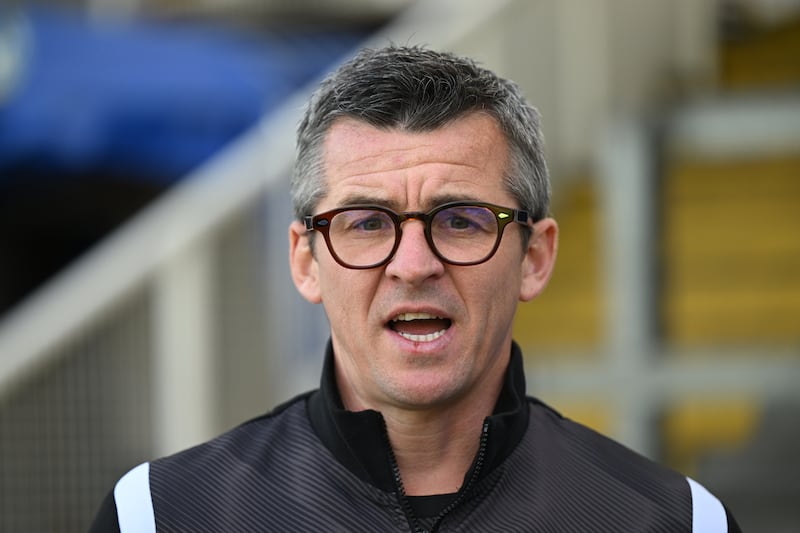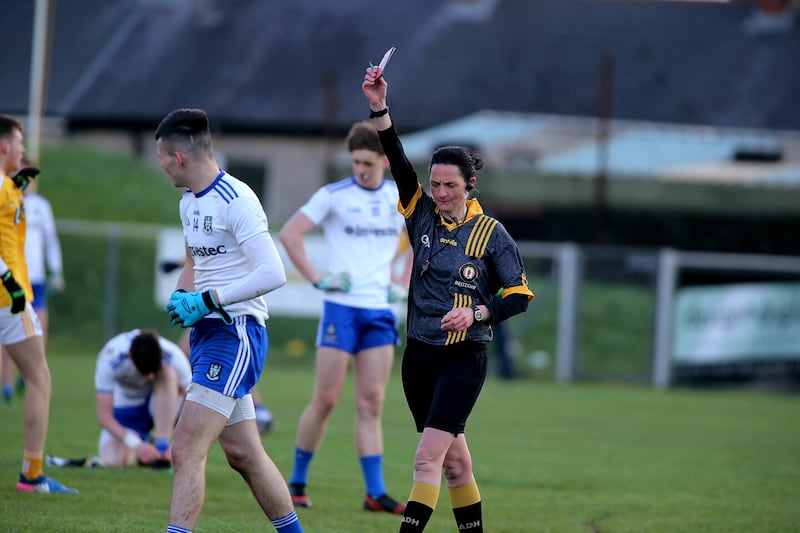Rebecca Welch made history over the Christmas period by becoming the first woman to referee a Premier League game in England.
Burnley beat Fulham 2-0 and what was remarkable about the game apart from the significance of the occasion, was that it was unremarkable.
Both managers Marco Silva (Fulham) and Vincent Kompany (Burnley) praised Welch’s performance with Silva stating post-match that it was not the referee’s fault that they lost.
Another step in the normalisation of seeing more women involved in the men’s game, at least that was the hope.
Followers of X, or Twitter as it was called in a former life, are used to seeing and reading comments that really deserve not to be spoken about.
The social media site can be a cesspool for those who wish to vent the utmost bile and direct their hatred towards individuals, many of them with an anonymous name.
There are no consequences to their actions and this can leave those targeted by abuse feeling bullied and very vulnerable.
The former Manchester City player and ex-Bristol Rovers manager Joey Barton has been in the headlines for all the wrong reasons recently, with his incessant tirades against female commentators.
In his opinion, they are not qualified to speak about men’s football.
He feels they should stick to women’s football just as he “would not be qualified to speak about knitting or netball.”
Since he began his rant on social media in early December, the language has escalated, as has his number of followers from 2.1 million to 2.8 million on the platform.
His recent abuse of pundits Eni Aluko and Lucy Ward, who have both represented England, comparing them to the notorious serial killers " Fred and Rose West of commentary”, caused their employers ITV to issue a swift response:
“For Joey Barton, an ex-professional player with a significant social media presence, to target two of our pundits, Eni Aluko and Lucy Ward, with such vindictive remarks based on gender and to invoke the names of serial killers in doing so is clearly contemptible and shameful on his part. Football is for everyone.”
His response to this was as you would imagine.

Female pundits “are ruining the game for everyone” and he wants to “keep them off the tele”.
Any condemnation from anyone, for example the soccer pundit Gary Neville is abused and dismissed as irrelevant.
Misogyny is alive and well and what social media allows is for those with extreme attitudes to convene behind a common cause.
In Barton’s case, he certainly has increased his media profile but nobody in the mainstream media would be interested in working with him.
Donald Trump has proven that the most outrageous comments and lies will be believed so is Barton using a similar tactic?
Target an emotive topic, create a lot of traction and increase your own publicity and agenda? It is certainly working for him.

Speaking with television presenter Piers Morgan, Barton said: “You have to be there on merit, not to fit this woke agenda that is going on in society.”
He continued: “You don’t have to have played the game, a lot of managers haven’t, a lot of commentators haven’t. But they’ve earned the right with hard work over a prolonged period of time to get into that space.”
I have worked mostly in male-dominated sports for the past 20 years, working at local radio, writing match reports for local papers, researching, producing and then presenting national and international GAA programmes.
I don’t know of any woman or man who consistently gets work in the media if they have not earned the right to be there.
No-one is sentimental or idealistic enough to give a woman a job in male sport if they do not know what they are talking about. No broadcaster or production company that I have ever worked with are content to put a woman in situ purely because of their gender.
Their reputations are on the line, so when it comes to choosing pundits, producers choose them carefully.
Women represent 50 per cent of the population and that is reflected in crowd attendances at men’s games. Why should we not hear their thoughts about men’s matches and equally why should we not hear men’s views on women’s games? It’s all football after all.
In 2022, Maggie Farrelly became the first female GAA referee to officiate in the men’s senior National Football League when she took charge of the Division Four Leitrim and London clash.
“I’m part of a panel and there is no difference to how I train and prepare for games compared to my male counterparts,” says Maggie.
The feedback and reaction to her officiating has been overwhelmingly positive and her journey to get to where she is now, has been similar to many of her male counterparts.
“You are the person appointed to do the game and are entrusted to do this, regardless of gender. You are there to do a job for 60-70 minutes based on knowledge and experience. You have come up the ranks from underage to minor and then senior and in order to progress you need bigger challenges”.

“You need to have a thick skin to be a referee but you do have to let some things slide. You park the abuse and let it go and move forward to the next game.”
By and large though, Maggie has found nothing but respect from players and managers on the pitch.
“You have no control over comments on social media or supporters. It’s not just referees who have to deal with this but players and mentors too. At the end of the day, we are all volunteers, proud to be part of the GAA.”
The value of respect is one that Maggie has felt when she officiates in her games and it is a basic human dignity.
You may not agree with what someone else is saying but you do not need to insult, debase or humiliate them by your words or actions.
This value is not high on Donald Trump or Joey Barton’s agenda and it is concerning that a culture has been allowed to manifest as acceptable behaviour with no consequences.
The more people complained about Trump’s behaviour, the more his popularity soared.
Perhaps, it’s time for all of us to stop giving those with extreme views oxygen. At the end of the day, being insignificant would cut them to the core.
" s binn béal ina thost” the Irish seanfhocal screams at us. Silence is golden. Time for certain individuals to learn the value of what that means.



